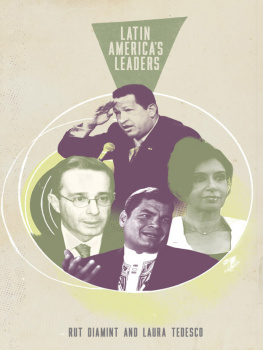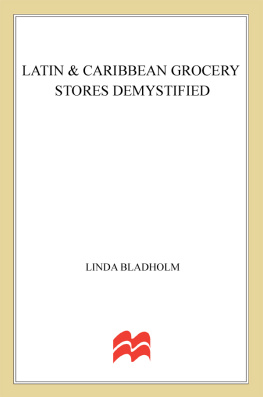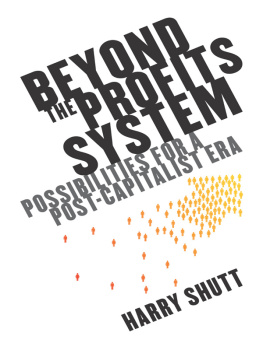Seawright - Party-system collapse: the roots of crisis in Peru and Venezuela
Here you can read online Seawright - Party-system collapse: the roots of crisis in Peru and Venezuela full text of the book (entire story) in english for free. Download pdf and epub, get meaning, cover and reviews about this ebook. City: Peru;Stanford;California;Venezuela, year: 2012, publisher: Stanford University Press, genre: Politics. Description of the work, (preface) as well as reviews are available. Best literature library LitArk.com created for fans of good reading and offers a wide selection of genres:
Romance novel
Science fiction
Adventure
Detective
Science
History
Home and family
Prose
Art
Politics
Computer
Non-fiction
Religion
Business
Children
Humor
Choose a favorite category and find really read worthwhile books. Enjoy immersion in the world of imagination, feel the emotions of the characters or learn something new for yourself, make an fascinating discovery.
Party-system collapse: the roots of crisis in Peru and Venezuela: summary, description and annotation
We offer to read an annotation, description, summary or preface (depends on what the author of the book "Party-system collapse: the roots of crisis in Peru and Venezuela" wrote himself). If you haven't found the necessary information about the book — write in the comments, we will try to find it.
Seawright: author's other books
Who wrote Party-system collapse: the roots of crisis in Peru and Venezuela? Find out the surname, the name of the author of the book and a list of all author's works by series.
Party-system collapse: the roots of crisis in Peru and Venezuela — read online for free the complete book (whole text) full work
Below is the text of the book, divided by pages. System saving the place of the last page read, allows you to conveniently read the book "Party-system collapse: the roots of crisis in Peru and Venezuela" online for free, without having to search again every time where you left off. Put a bookmark, and you can go to the page where you finished reading at any time.
Font size:
Interval:
Bookmark:
PARTY-SYSTEM COLLAPSE
The Roots of Crisis in Peru and Venezuela
Jason Seawright
Stanford University Press
Stanford, California
Stanford University Press
Stanford, California
2012 by the Board of Trustees of the Leland Stanford Junior University.
All rights reserved.
No part of this book may be reproduced or transmitted in any form or by any means, electronic or mechanical, including photocopying and recording, or in any information storage or retrieval system without the prior written permission of Stanford University Press.
Printed in the United States of America on acid-free, archival-quality paper
Library of Congress Cataloging-in-Publication Data
Seawright, Jason, author.
Party-system collapse : the roots of crisis in Peru and Venezuela / Jason Seawright.
pages cm
Includes bibliographical references and index.
ISBN 978-0-8047-8236-4 (cloth : alk. paper)
ISBN 978-0-8047-8392-7 (e-book)
1. Political partiesPeru. 2. Political partiesVenezuela. 3. VotingPeru. 4. VotingVenezuela. 5. ElectionsPeru. 6. ElectionsVenezuela. 7. PeruPolitics and government1980- 8. VenezuelaPolitics and government19741999. I. Title.
JL3498.A1S43 2012
324.285dc23
2012016317
Typeset by Bruce Lundquist in 10.5/15 Adobe Garamond
CONTENTS
FIGURES AND TABLES
FIGURES
TABLES
ACKNOWLEDGMENTS
This book is the product of many years research, and my efforts have been assisted in various ways by more people than I can count. Even so, let me here thank a number of people and organizations whose support has been invaluable.
This project would have been impossible without the love and support of my family: Taryn Nelson-Seawright, Artemis, and Athena. Through fieldwork trips, statistical analysis, and countless revisions of drafts, you have been patient and supportive. I think it is fair to say that I could not have done this without you.
Likewise, this book has been fundamentally shapedas has my intellectual development as a wholeby Henry E. Brady, David Collier, Ruth Berins Collier, and David Freedman. All four have always been generous with their time, challenging with their feedback, and supportive beyond the call of duty.
My work on this project in Venezuela, Peru, and Argentina was furthered significantly by help and support from a range of institutions. In particular, Adolfo Vargas and the Political Science Department at the Universidad Simn Bolvar in Venezuela provided suggestions, contacts, and access to survey data. The Social Science Department at the Universidad del Pacfico likewise provided contacts and an institutional home in Peru. The Political Science Department at the Universidad Torcuato di Tella in Argentina provided similar services and offered valuable feedback on an initial presentation of key arguments made in this volume. The associations Alternativa, Arariwa, and Transparencia in Peru provided essential help in carrying out survey and experimental research in that country.
Invaluable contributions to the success of the fieldwork for this project, as well as in the overall intellectual framing of the book, were made by numerous people including Julio Cotler, Steve Ellner, Sebastian Etchemendy, Miriam Kornblith, Gustavo Mata, Martin Tanaka, Javier Tantalean Arbulu, Alfredo Torres Uribe, Adolfo Vargas, and my teams of interviewers in Argentina, Peru, and Venezuela.
I was fortunate to receive feedback on this project at various stages from a wide range of brilliant scholars, established and emerging. Thanks go, in particular, to Taylor Boas, Jennifer Cyr, Pradeep Chhibber, Michael Coppedge, Henry Dietz, Thad Dunning, Zach Elkins, Sebastian Etchemendy, Natalia Ferretti, Daniel Galvin, Edward Gibson, Kenneth F. Greene, Kirk A. Hawkins, Maiah Jaskowski, Diana Kapiszewski, Terry Lynn Karl, Herbert Kitschelt, Loan Le, Steven Levitsky, James Mahoney, Scott Mainwaring, Matthew Marostica, Sebastian Mazzuca, Jana Morgan, Scott Morgenstern, David Myers, James Robinson, Ben Ross Schneider, Kathleen Thelen, participants in the 2004 Workshop on the Analysis of Political Cleavages and Party Competition at Duke University, the 2005 writing workshop in the Political Science Department at the University of California, Berkeley, my fellow students in the 2006 Latin American politics graduate research seminar at the University of California, Berkeley, participants in the 2007 Midwest Regional Workshops on Latin America at the Kellogg Institute for International Studies at Notre Dame, students in the 2009 seminar on comparative political parties at the University of Texas at Austin, participants in the 2010 Political Psychology Workshop at the University of Chicago, participants in the Conference on New Methodologies and Their Applications in Comparative Politics and International Relations, at Princeton University in 2010, students and faculty members in the Department of Political Science at Loyola University, participants in the 2011 Political Parties Working Group at Northwestern University, and discussants and audience members at various conference panel sessions.
This material is based on work supported by the National Science Foundation under Grant No. 0418459, as well as a Graduate Research Fellowship. Any opinions, findings, and conclusions or recommendations expressed in this material are those of the author and do not necessarily reflect the views of the National Science Foundation. This research was also supported by an International Dissertation Research Fellowship from the Social Science Research Council, a Research Grant from the University Research Grants Committee at Northwestern University, as well as funding from the University of California, Berkeley.
My apologies to those I may have inadvertently omitted in this section; I appreciate your contributions, even so. As always, any mistakes are my own.
ONLINE APPENDIX
An online appendix to this volume can be accessed at www.sup.org/partysystemcollapse.
The appendix contains additional methodological discussion, supplementary figures, and supporting statistical results related to the arguments of .
C HAPTER 1
PARTY-SYSTEM COLLAPSE IN SOUTH AMERICA
Before the 1990s, Venezuelas two-party system was among the most stable and well-institutionalized party systems in the developing world (Coppedge 1994: 17477). One of the two traditional parties won every fully democratic presidential election in the countrys history. From the early 1970s through 1988, these traditional parties, in effect, faced no challengers, winning a combined share of at least 85 percent of the presidential vote in 1973, 1978, 1983, and 1988. Over this period, the traditional parties also dominated the legislature.
In 1993, however, these established electoral patterns began to change rapidly. Both traditional parties lost roughly half of the support they had enjoyed in the previous presidential elections, andfor the first time in Venezuelan democratic historythe winner of the election was not endorsed by either of the established parties.
What began as traditional-party decline in 1993 culminated, in the 1998 presidential elections, in a party-system collapse (Dietz and Myers 2007; Morgan 2007). Neither of the two traditional parties was able to get any traction for its selected candidate. One party endorsed a candidate from outside the party system early in the campaign cycle; the other waited until days before the election to throw its support to that same outsider candidate. Thus the election became a contest between two candidates from outside the established party system. Both traditional parties have been electorally marginalized since that election.
The same election that saw the collapse of the Venezuelan traditional parties also elevated Hugo Chvez to the presidency. Subsequently, Chvez has departed dramatically from the moderate, pro-U.S. politics that were previously traditional in Venezuela, striking out instead in the direction of a bold, confrontational populist leftism (Hawkins 2011)an approach that regularly reaches provocative symbolic heights, memorably including the moment when Chvez used a United Nations speech (on September 20, 2006) to characterize U.S. President George W. Bush as the devil (Lapper 2007: 1920); more substantive moments of provocation include Chvezs repeated statements that he intended to construct 21st-century Socialism and remake his country as a Socialist Republic of Venezuela. In a country that had once been a leading U.S. ally in Latin America and a model of moderate democracy, the degree of political change represented by these events is breathtaking.
Next pageFont size:
Interval:
Bookmark:
Similar books «Party-system collapse: the roots of crisis in Peru and Venezuela»
Look at similar books to Party-system collapse: the roots of crisis in Peru and Venezuela. We have selected literature similar in name and meaning in the hope of providing readers with more options to find new, interesting, not yet read works.
Discussion, reviews of the book Party-system collapse: the roots of crisis in Peru and Venezuela and just readers' own opinions. Leave your comments, write what you think about the work, its meaning or the main characters. Specify what exactly you liked and what you didn't like, and why you think so.

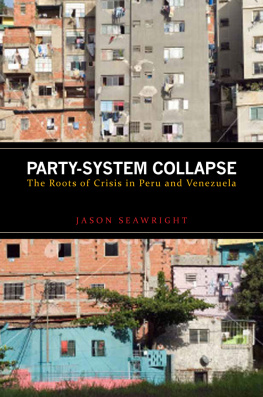

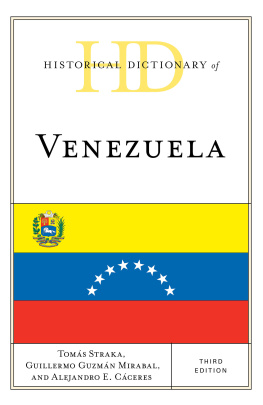
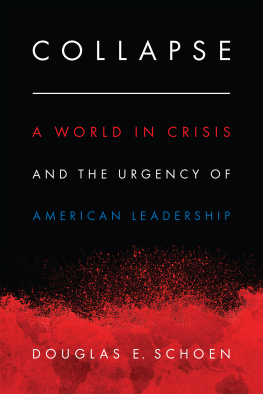
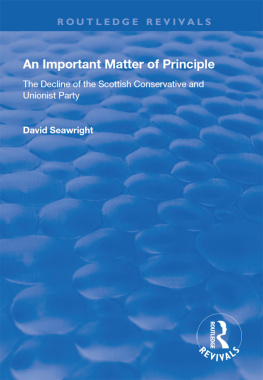
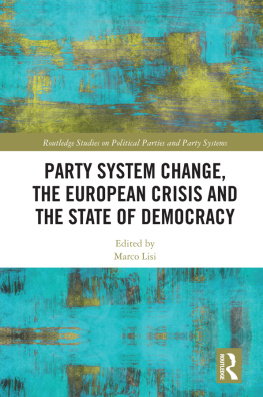
![Communist Party of PeruCommunist Party of Peru - Shining - The Collected Works of the Communist Party of Peru. 1968-1999 [Warning: Hate Speech and Negationism]](/uploads/posts/book/267146/thumbs/communist-party-of-perucommunist-party-of-peru.jpg)
